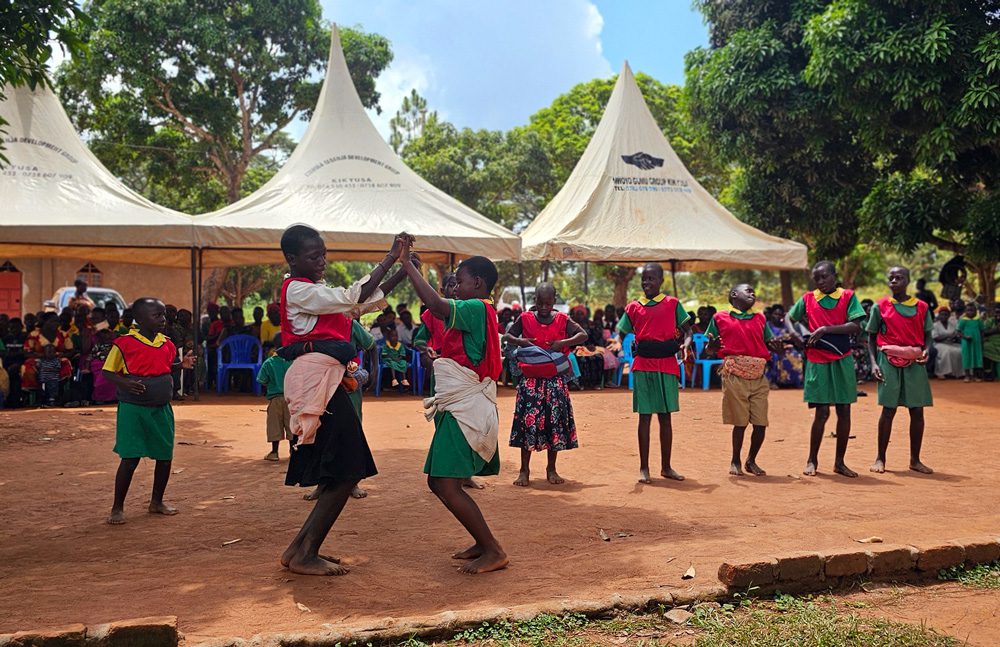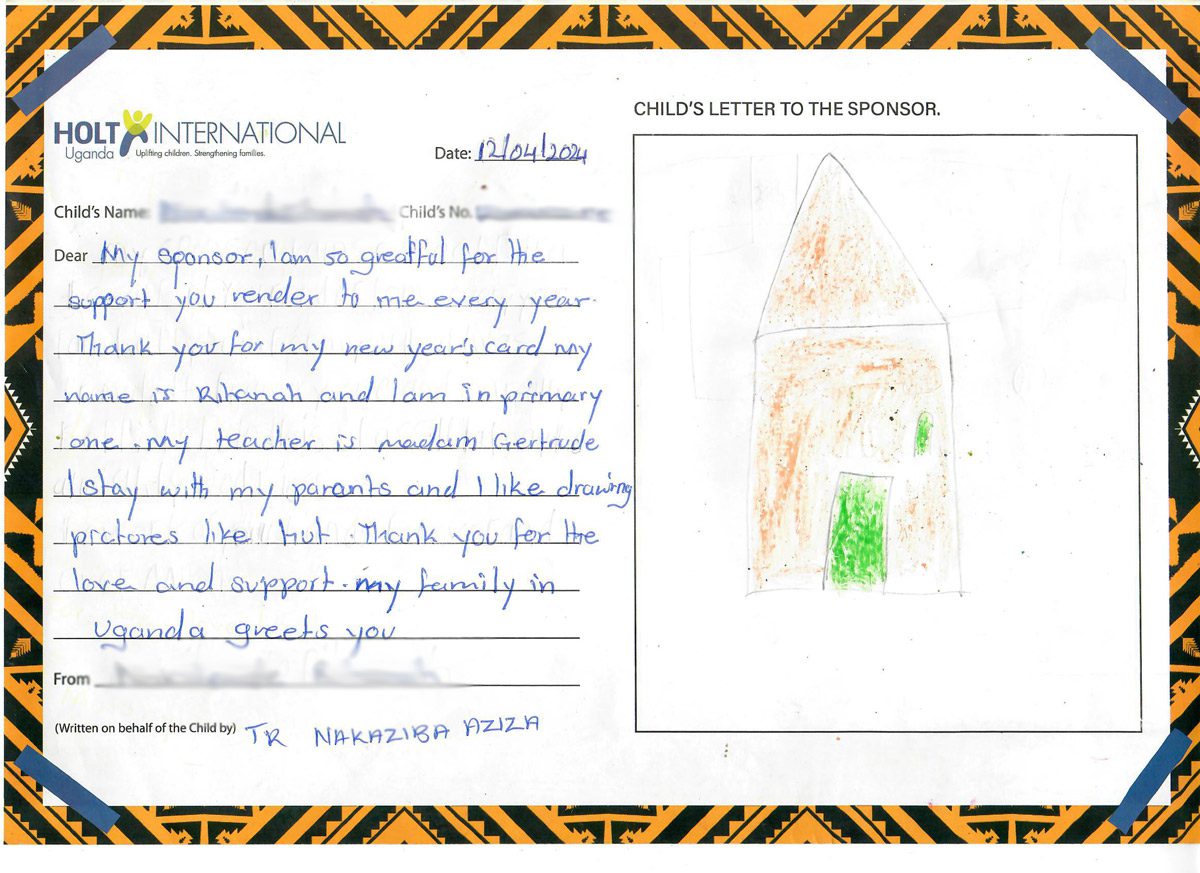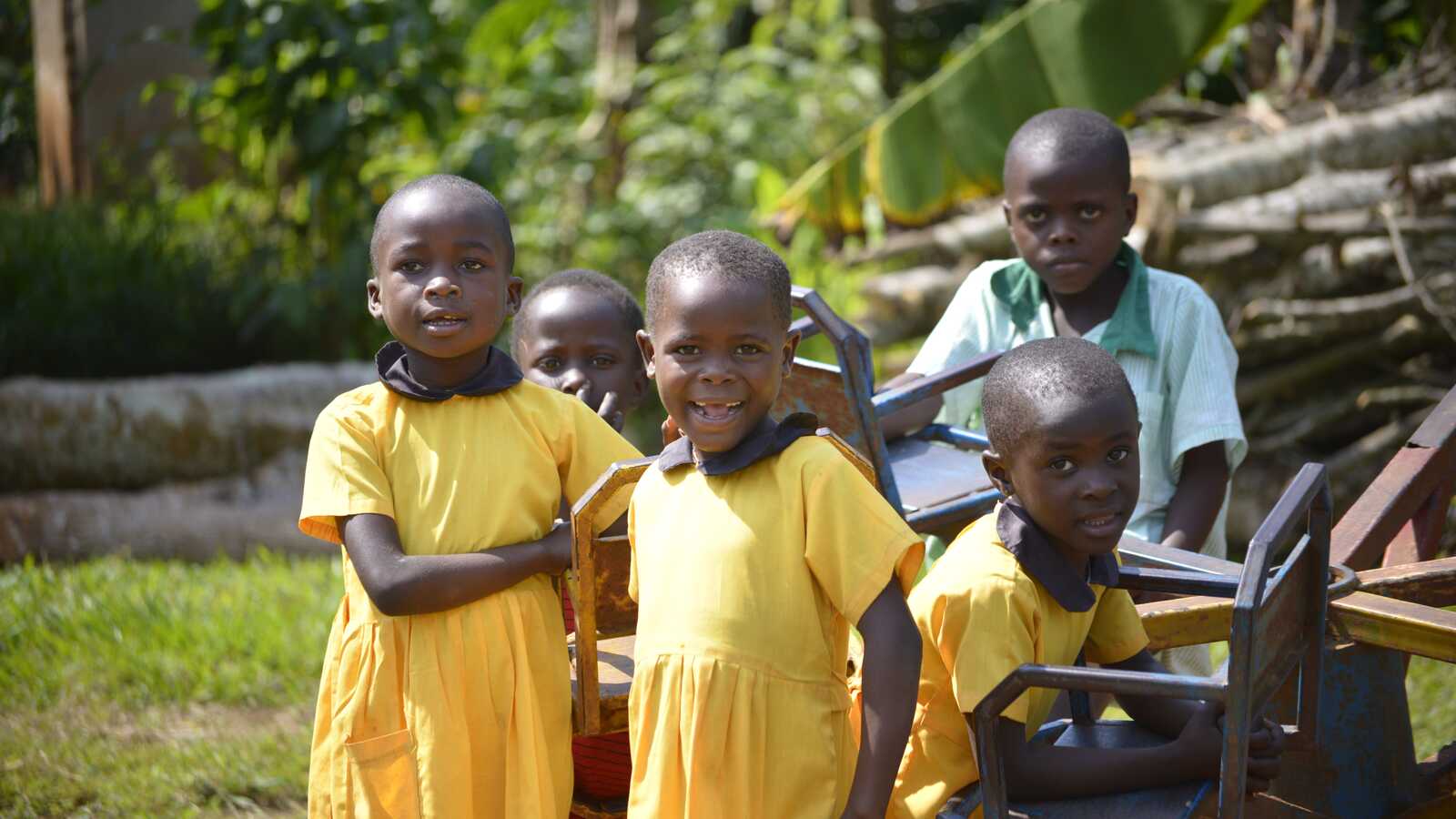Holt-supported schools in Uganda invited students and their caregivers to unleash the power of play on the nation’s first National Play Day.
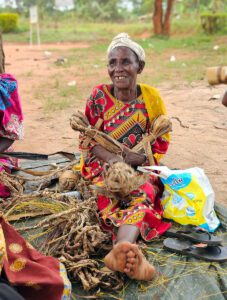
On a warm, sunny day last April, students at the Holt-supported Wakivule early childhood care and development center and primary school in central Uganda received a special treat. In honor of the country’s first-ever National Play Day, pupils traded their pencils and schoolbooks for jump ropes, building blocks and other toys. Parents and caregivers were invited to attend school that day — and before long, they were crafting play materials from clay, plastic bottles, and the leaves of palm and banana trees. They also took part in competitive games with the children, including relay races, dodgeball and soccer.
National Play Day officially took place on April 30, 2024, and was organized by the Uganda Ministry of Education & Sports in partnership with UNICEF and other global child advocacy organizations. Its goal was to celebrate the power of play! Because Uganda has one of the youngest populations in the world, with a median age of 16.2 years, the government has placed a special emphasis on quality education and play-based learning, viewing them as vital to the nation’s future and economic development. On National Play Day, the ministry encouraged government officials, decision-makers, educators, caregivers and members of the private sector to take steps to ensure that all children have safe play spaces and opportunities to integrate play into their school days and home lives.
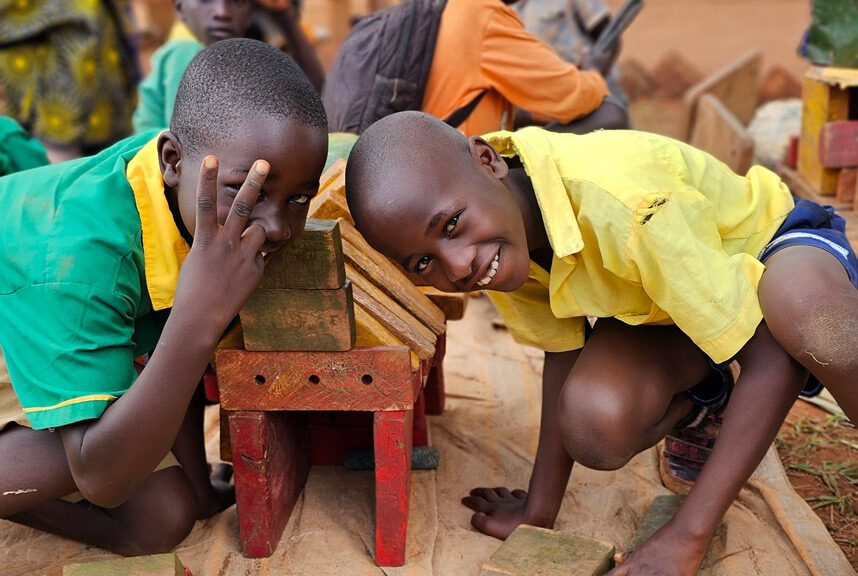
The Value of Play
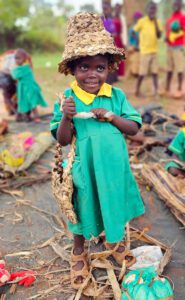
Play is thought to be one of the most transformative forces in a child’s life, especially in a country like Uganda where more than 20% of people live in chronic poverty and many children have lost one or both parents to brutal fighting among ethnic groups or HIV/AIDS.
According to child development experts, creative play can:
- Help children develop literacy and critical thinking skills
- Encourage physical fitness and the development of fine and gross motor skills
- Teach children how to work together as a team to solve problems
- Help children learn how to interact with others and make friends
- Allow children to build confidence and develop their identity and self-esteem
- Facilitate resilience in children and recovery from trauma
- Connect children with the world and help them to understand it, especially when adults join children in play
Play Reigns at Holt Schools!
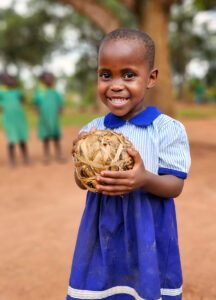
On National Play Day, Holt Uganda organized formal play days at each of its eight partner schools, including the one in rural Wakivule. As parents and caregivers entered the school grounds, they learned about the importance of play in children’s lives — and how it can help them thrive. In many Ugandan households, children have often been reprimanded when they take time to play rather than focus on their studies or household chores.
But on National Play Day, the scene at the Holt sponsor- and donor-supported schools was joyful!
Grown-ups happily helped children build clay sculptures and make dolls from woven materials. They also showed off their soccer and jump rope skills. Most important, they shared the fun with their children. As one child exclaimed, “I was glad to see my mother and other parents play with us!” Children were also delighted to watch their fathers jump rope as fathers are often known for being strict and harsh at home.
As the school day ended, caregivers and teachers pledged to continue to provide the time and space for children to play at home and at school — and to make National Play Day an annual event at Holt-supported schools.
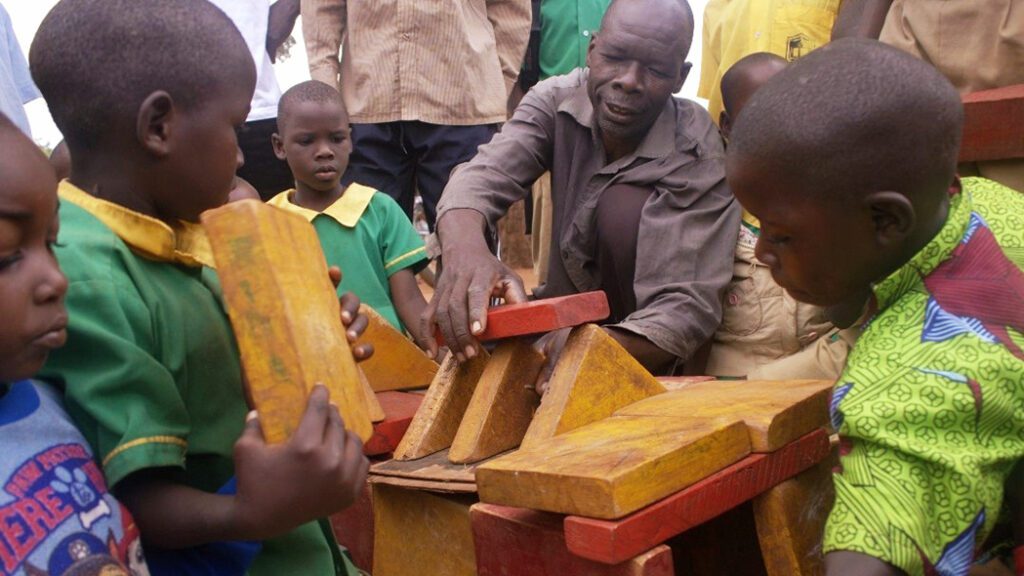
“The parents in our programs have shown incredible commitment to their children’s education, and National Play Day was a great reminder that learning extends beyond the classroom,” says Malia Robello, Holt’s program manager for Uganda. “This day of fun was the perfect opportunity to highlight the power of play and the important connection between children and the adults in their life.”
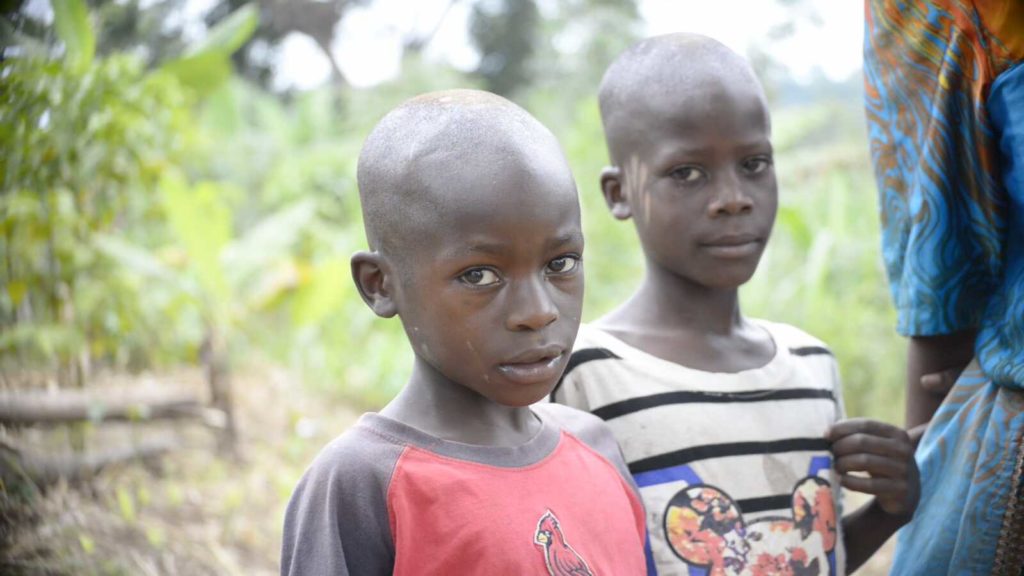
Help Children & Families in Uganda
Many children in Uganda have lost parents and live with extended family or are cared for by their eldest sibling. Children here need food, safe shelter, medical care and education. Nearly 20 percent of people in Uganda live in chronic poverty. Your gift will help a child or family in Uganda in greatest need.
